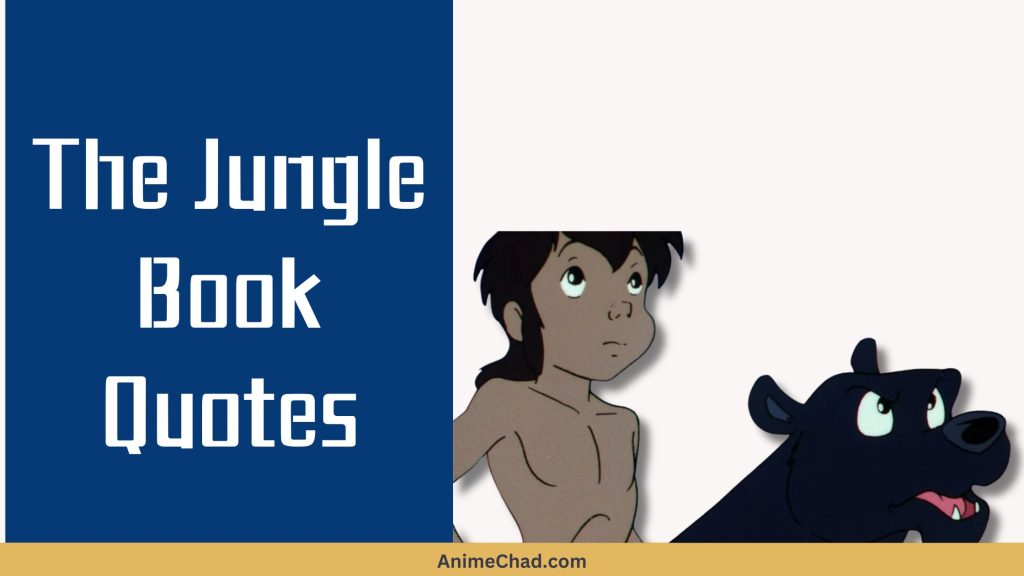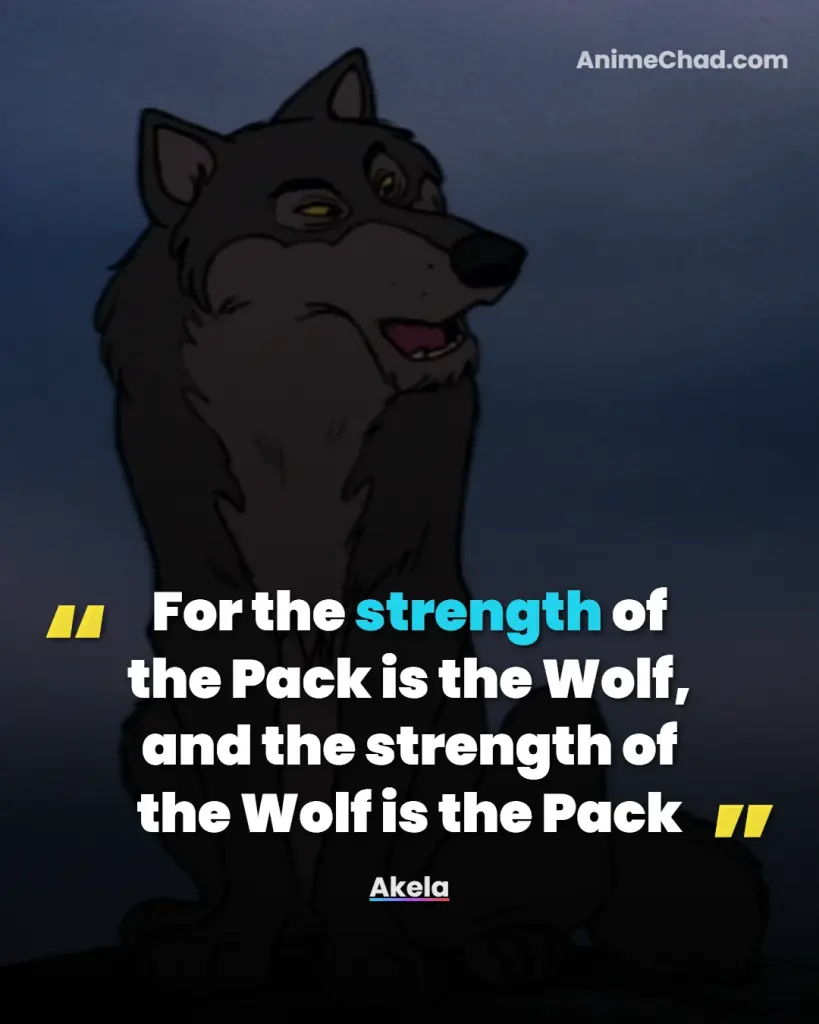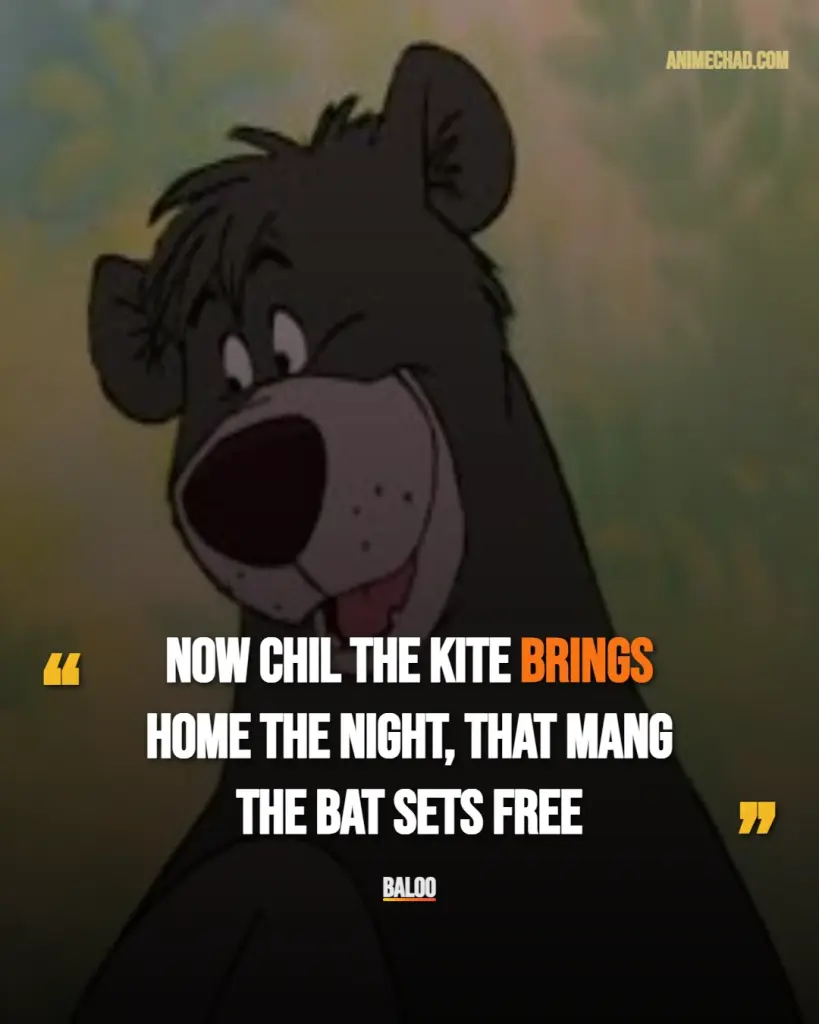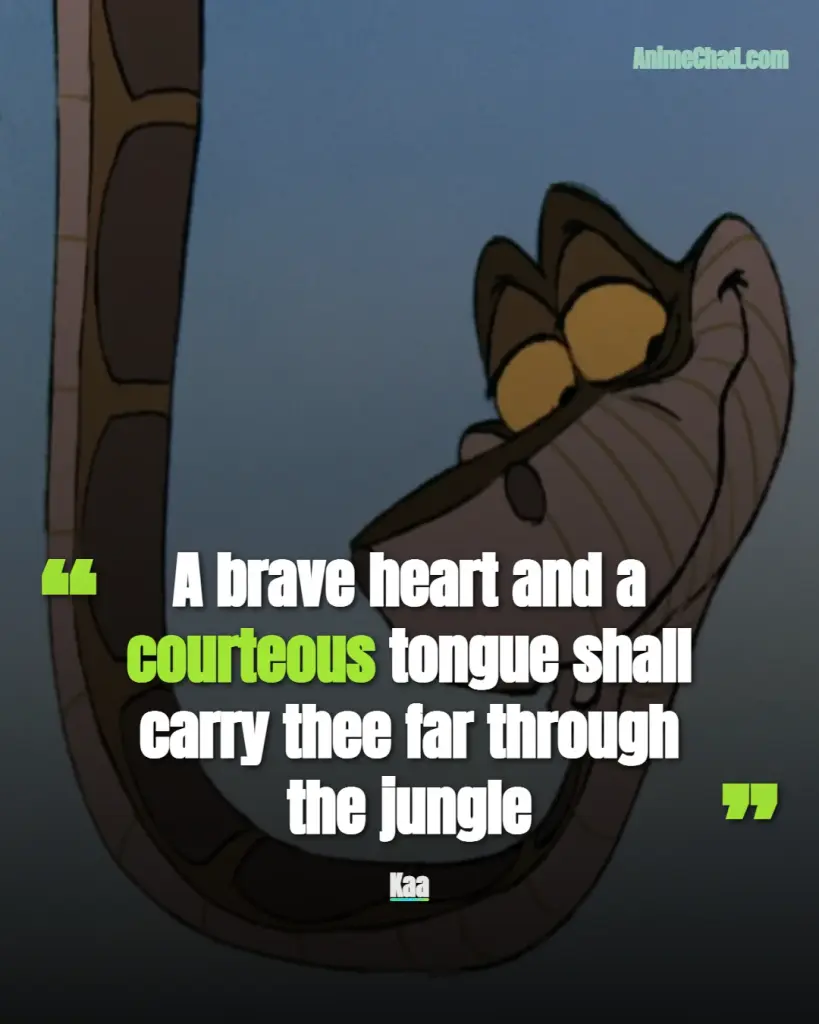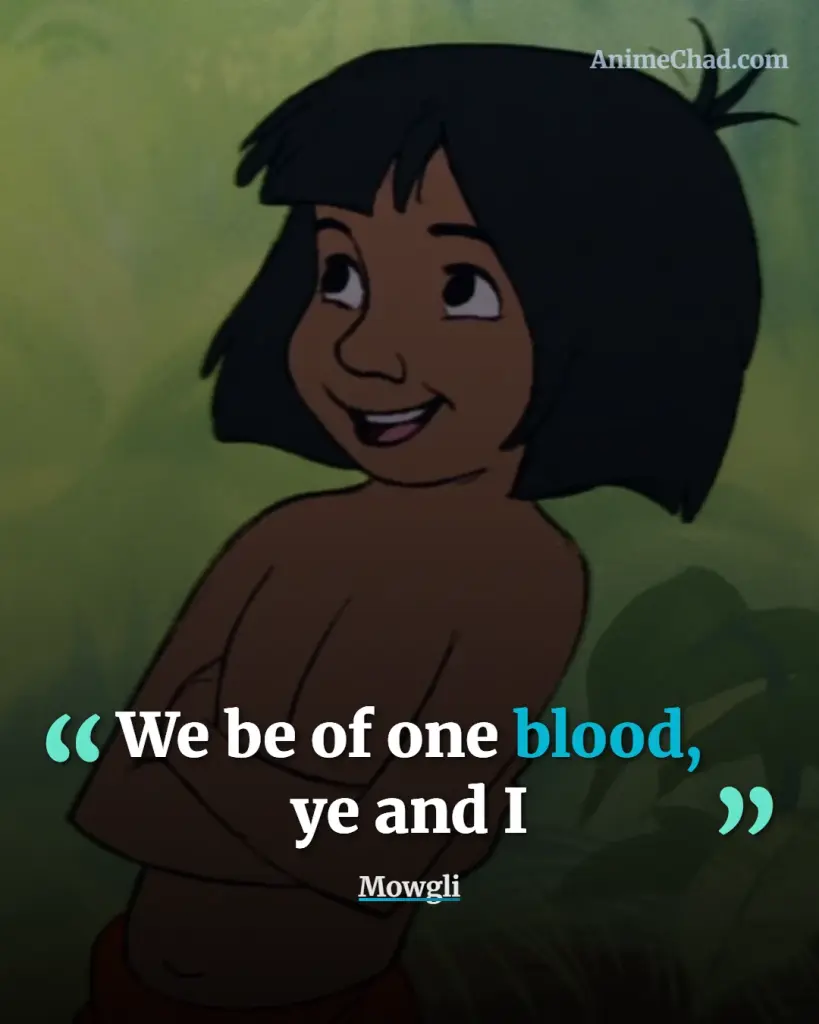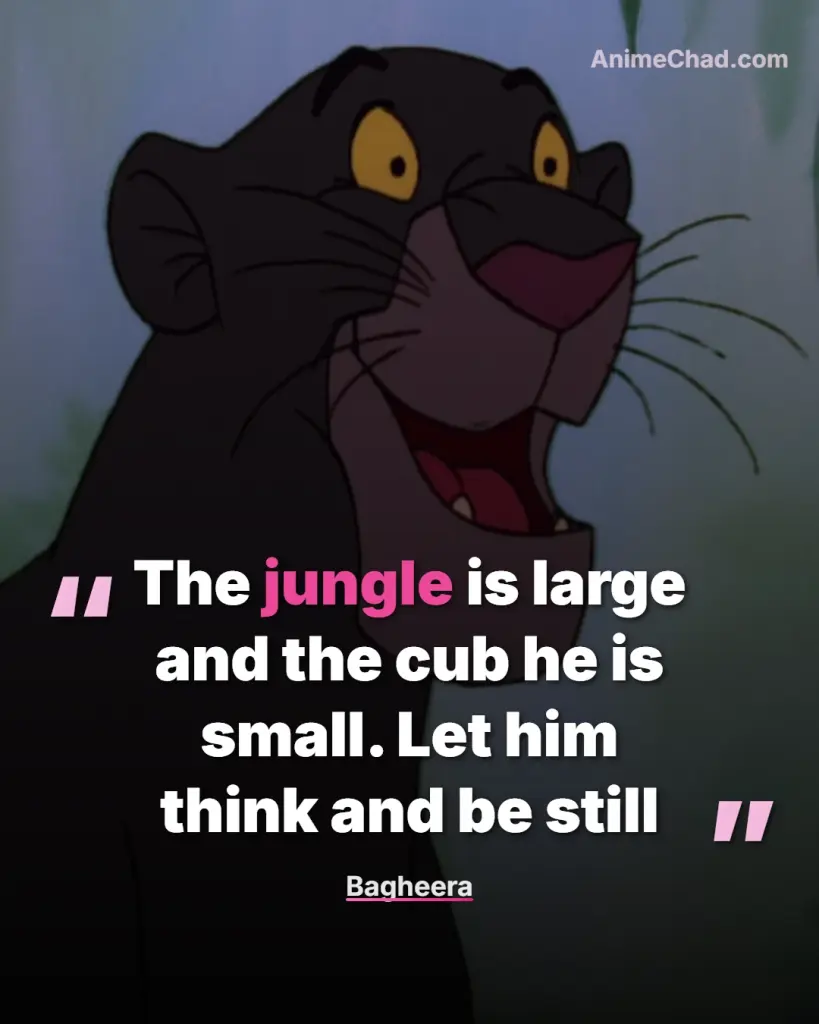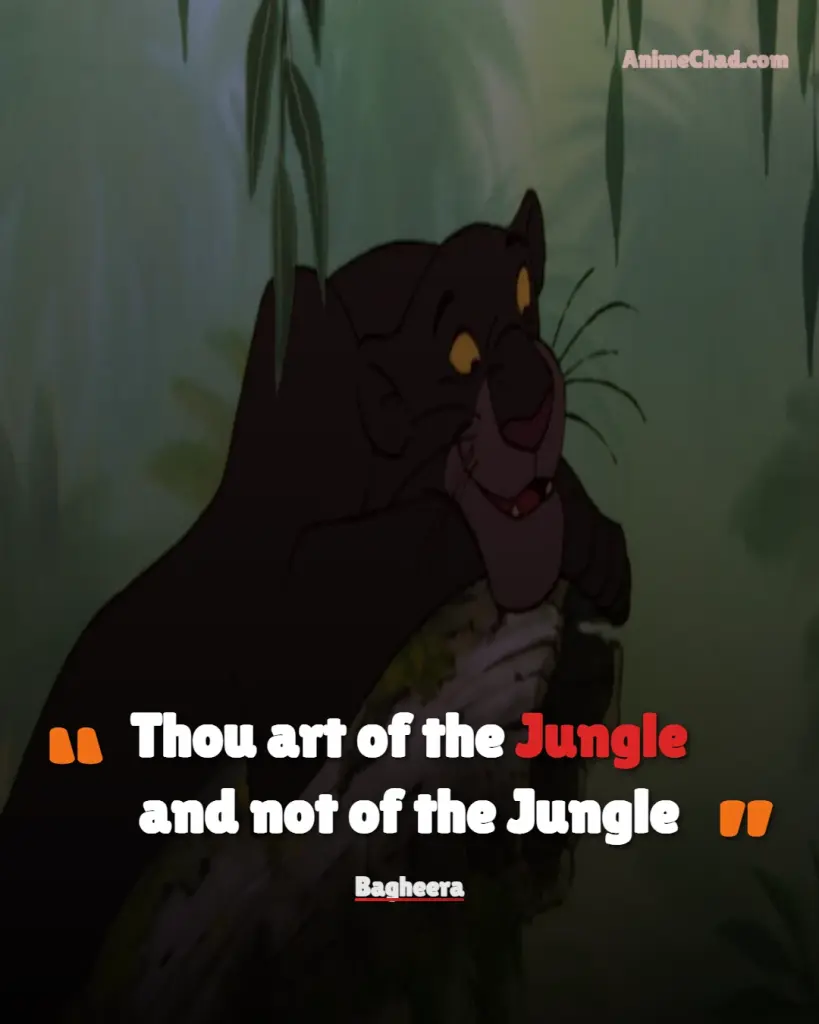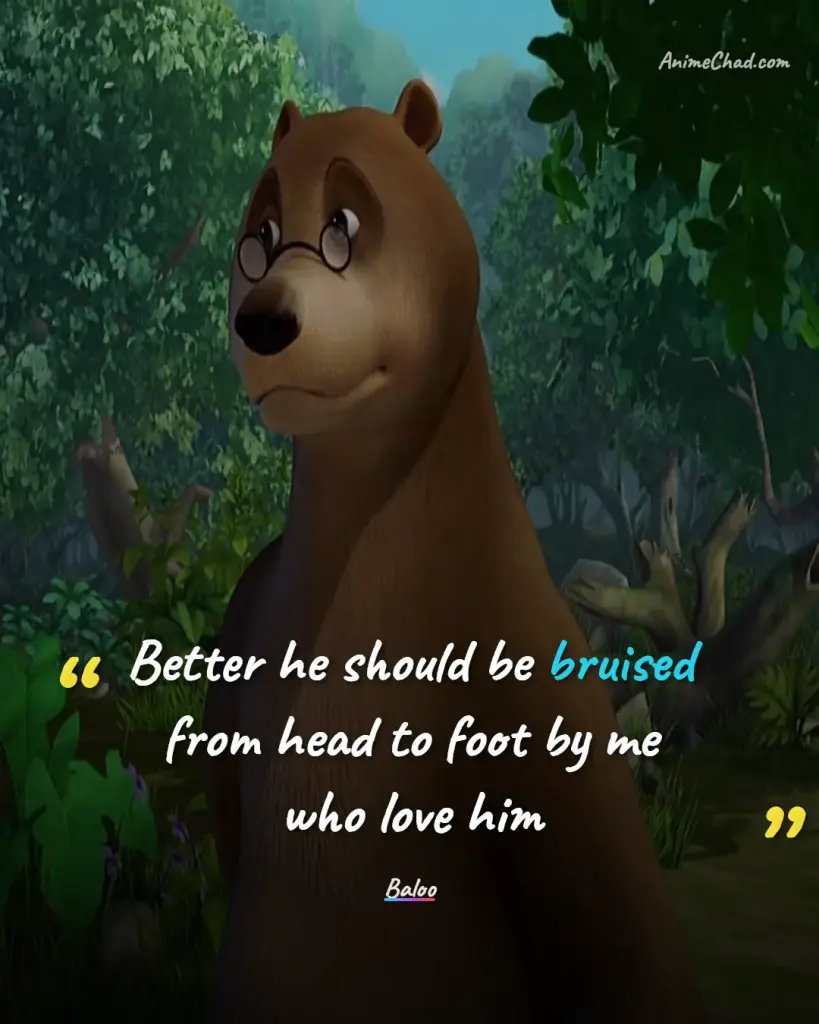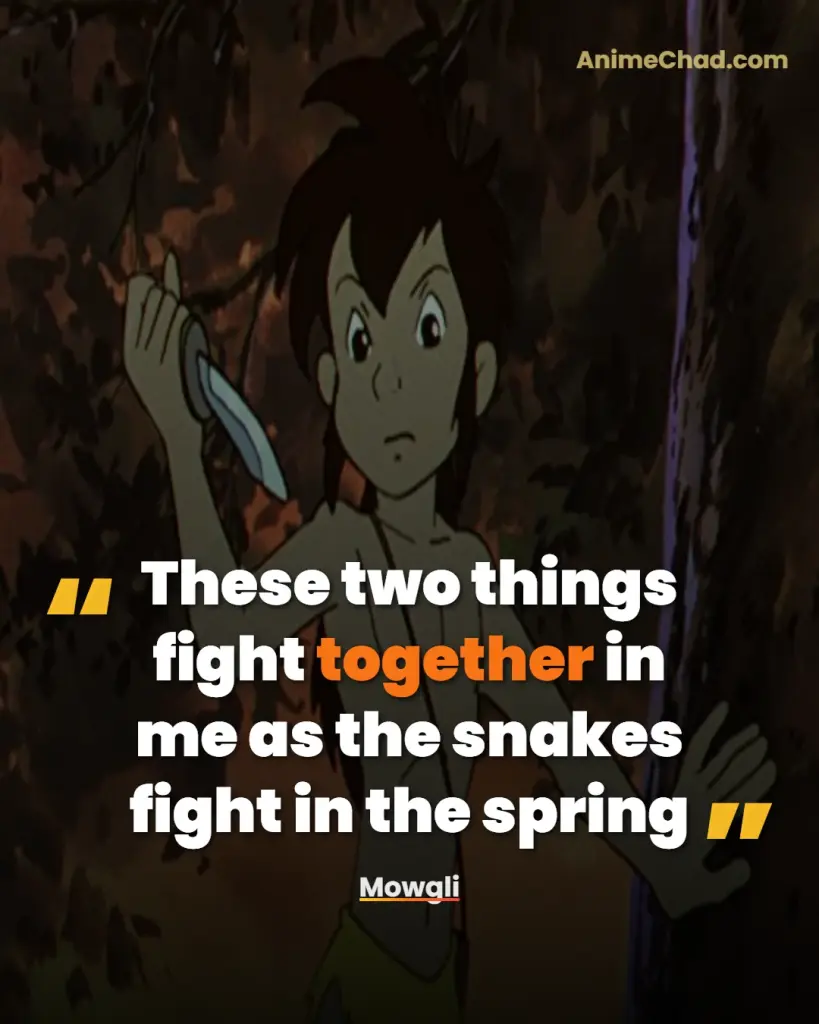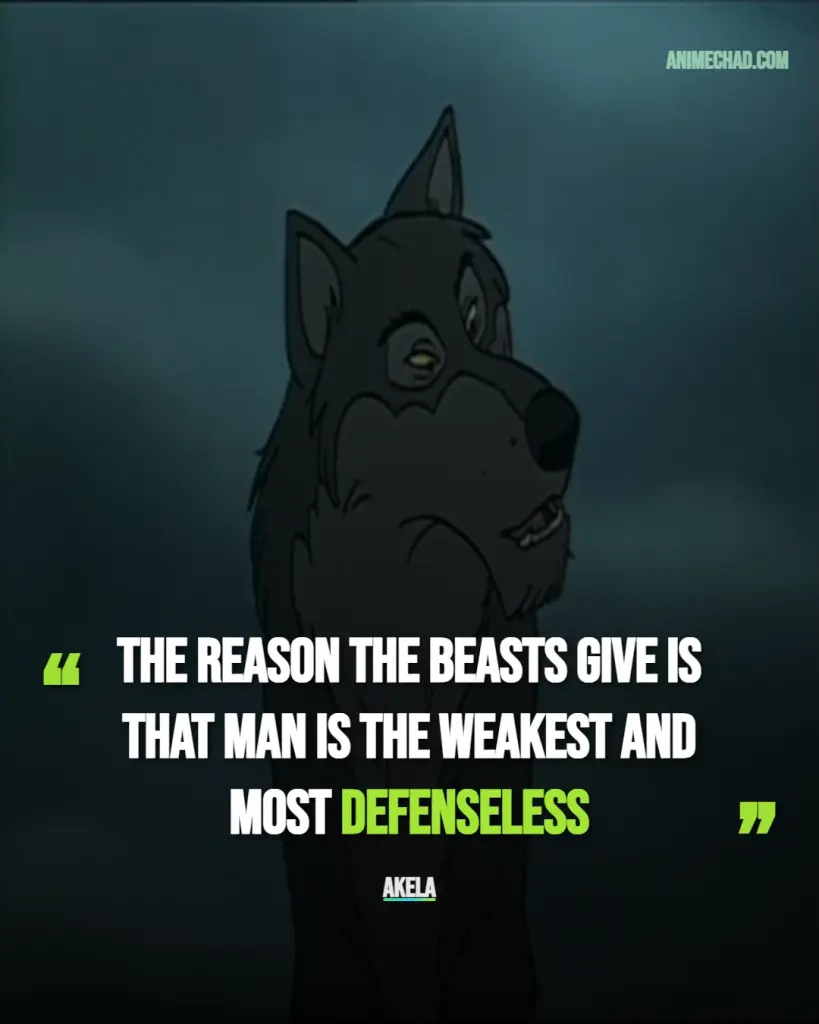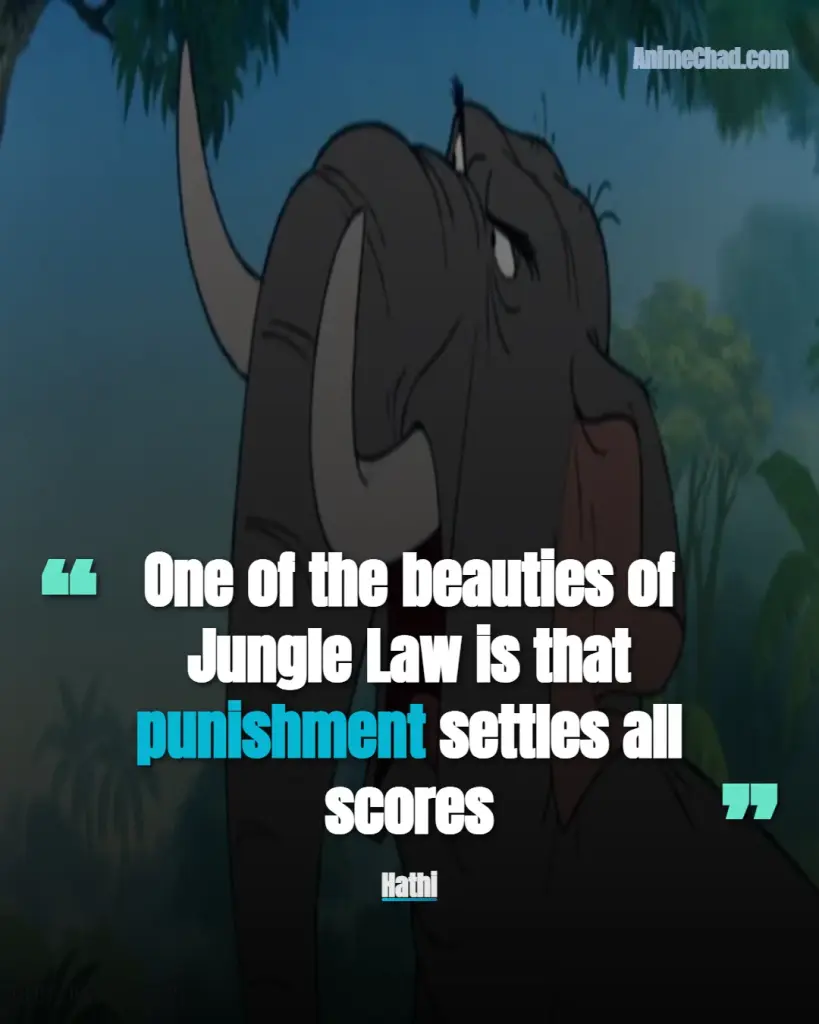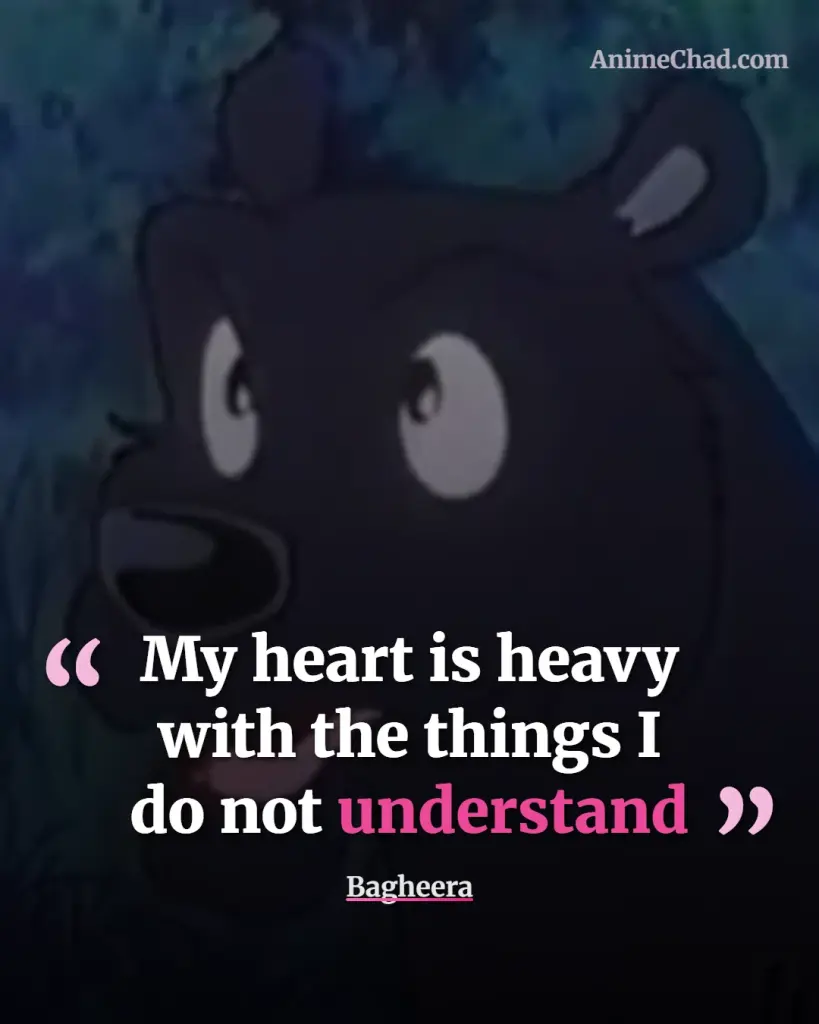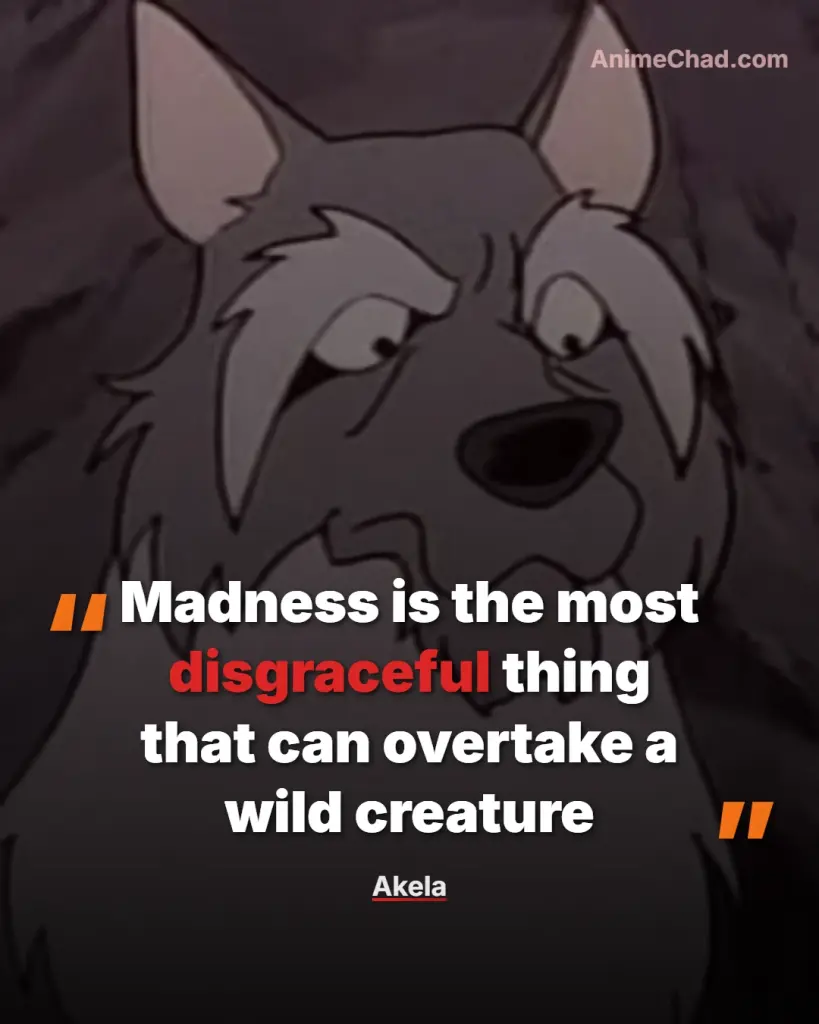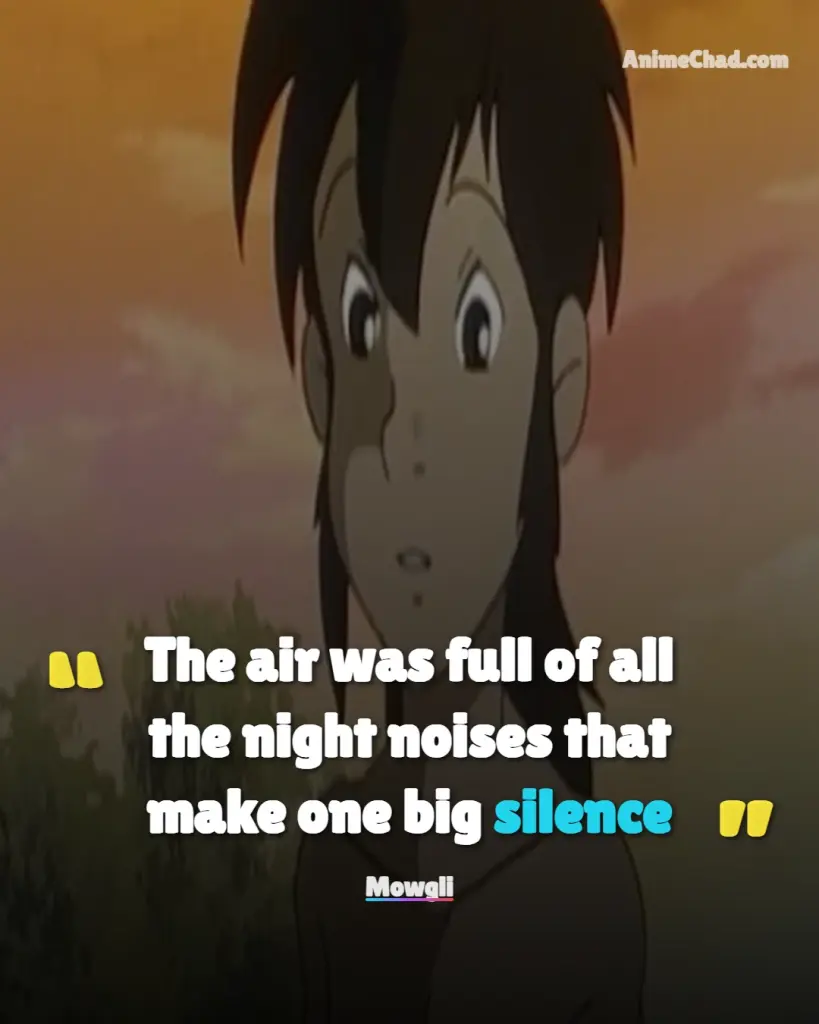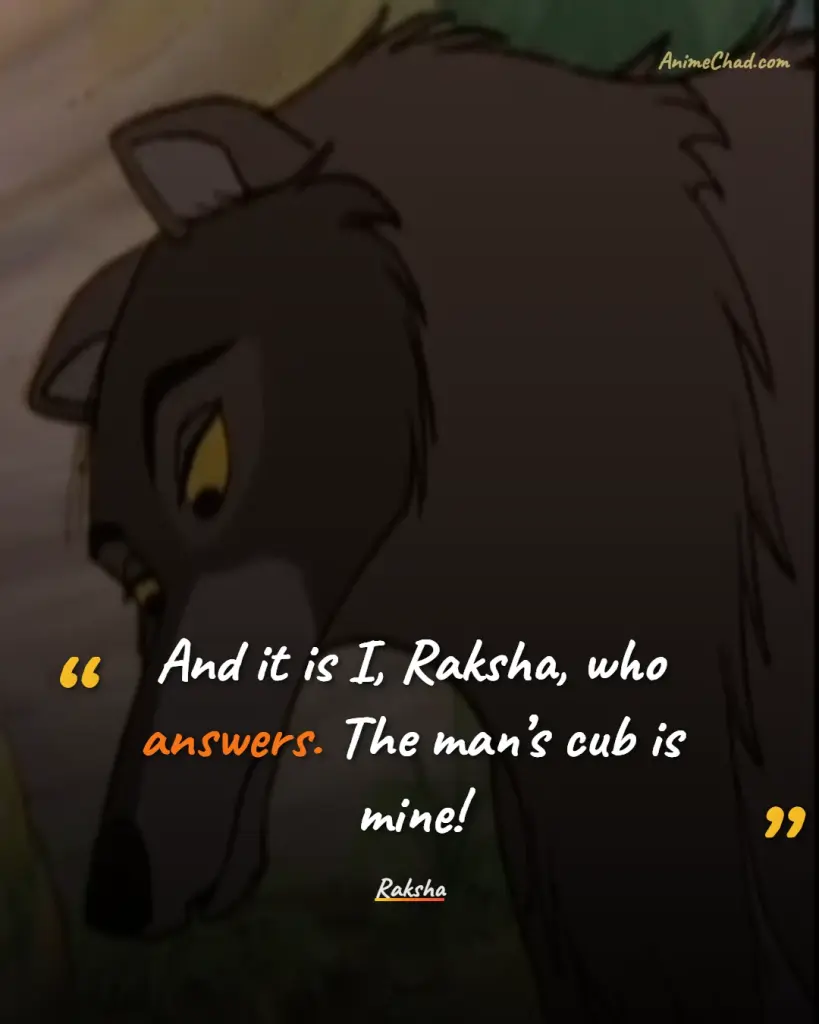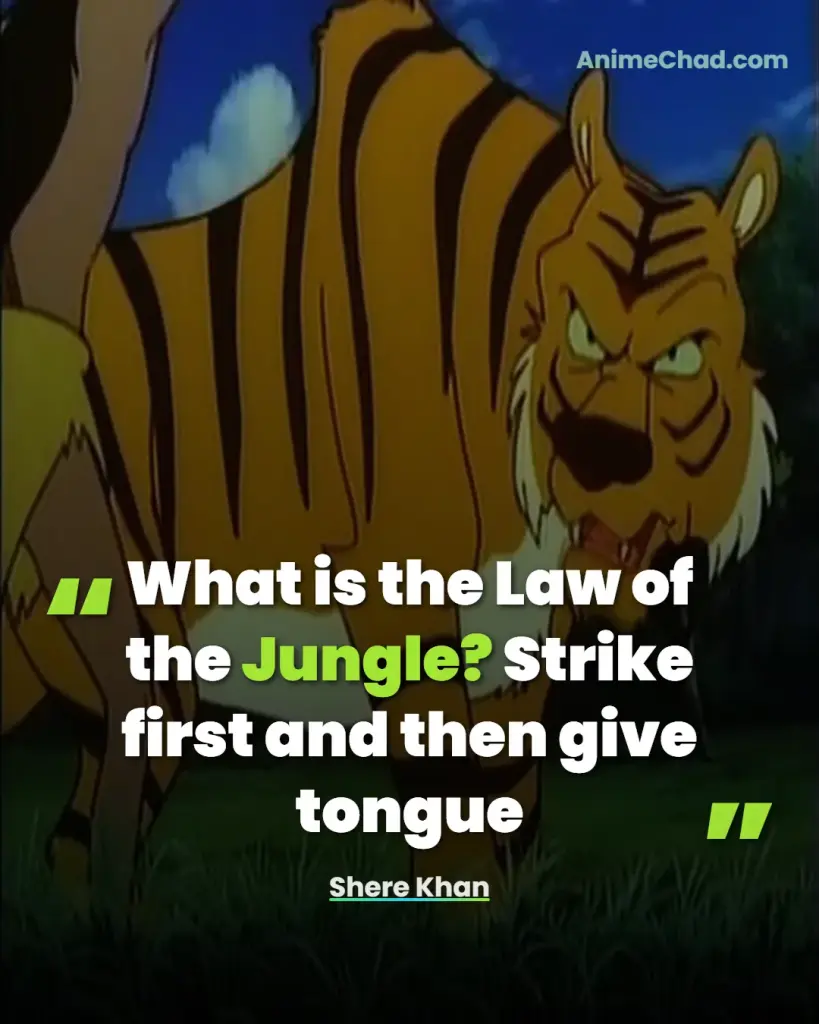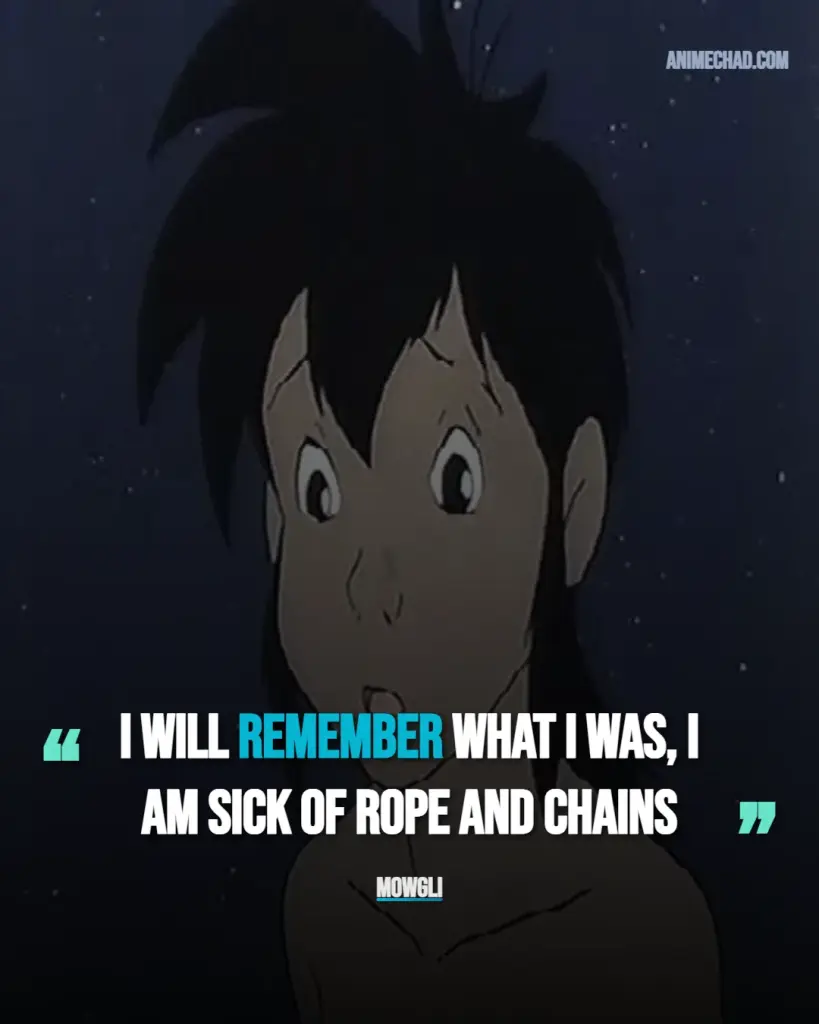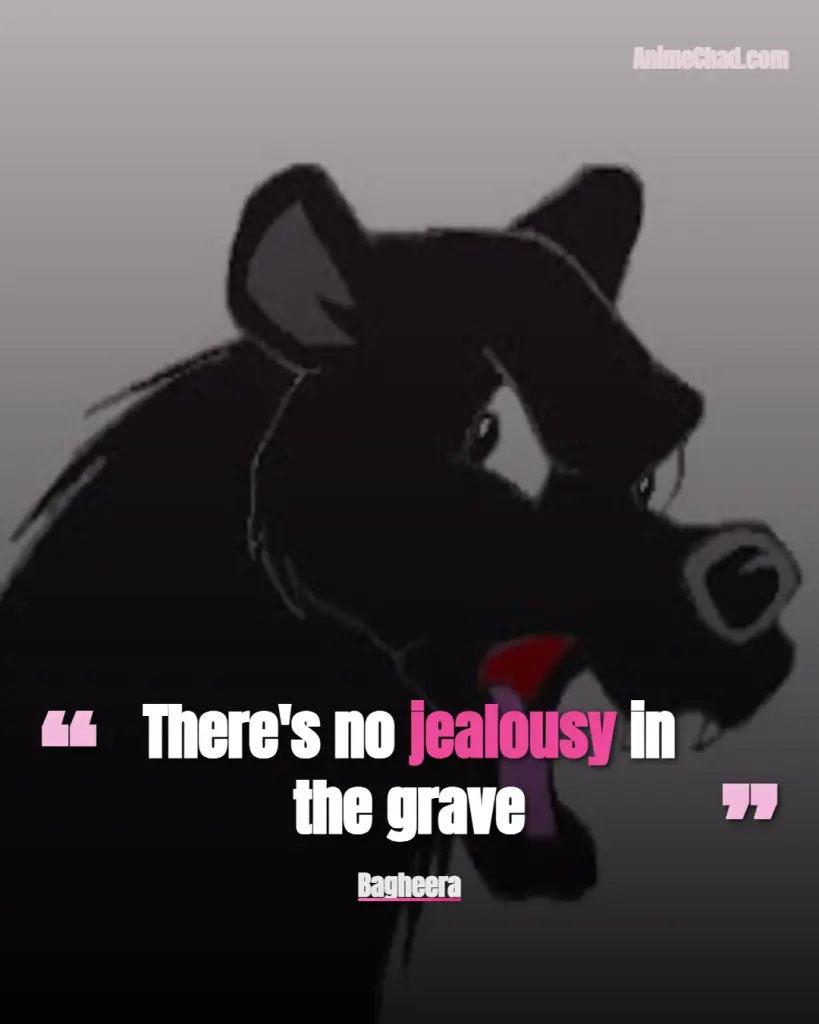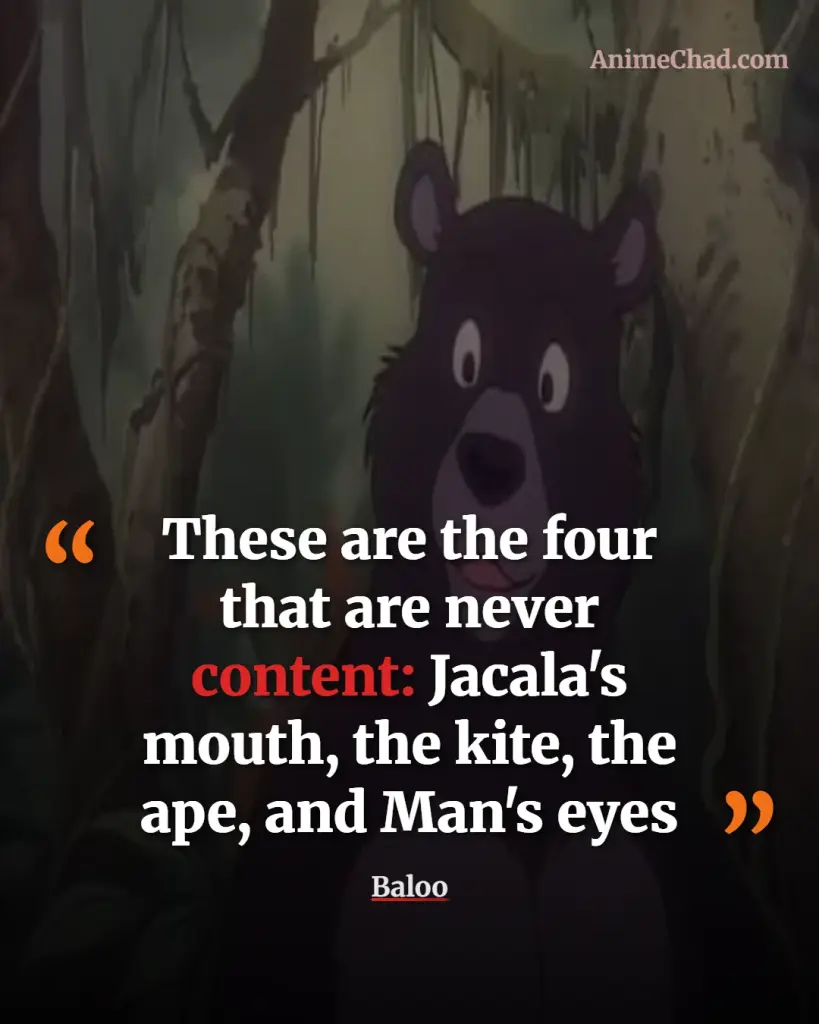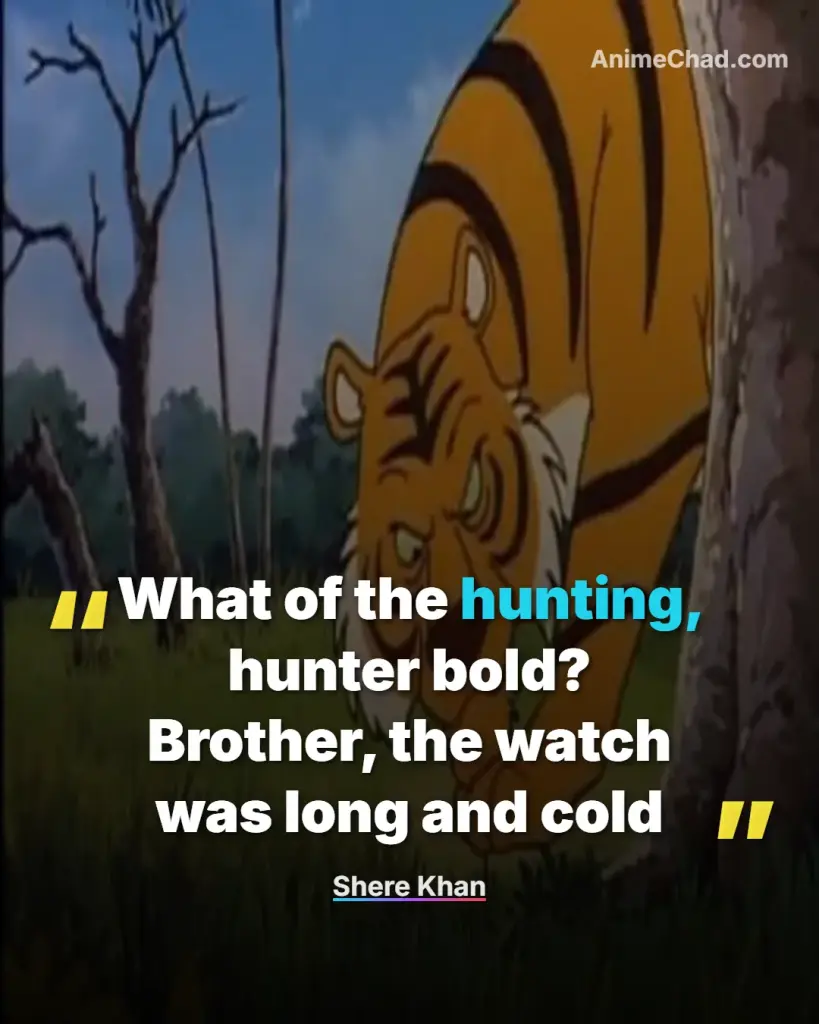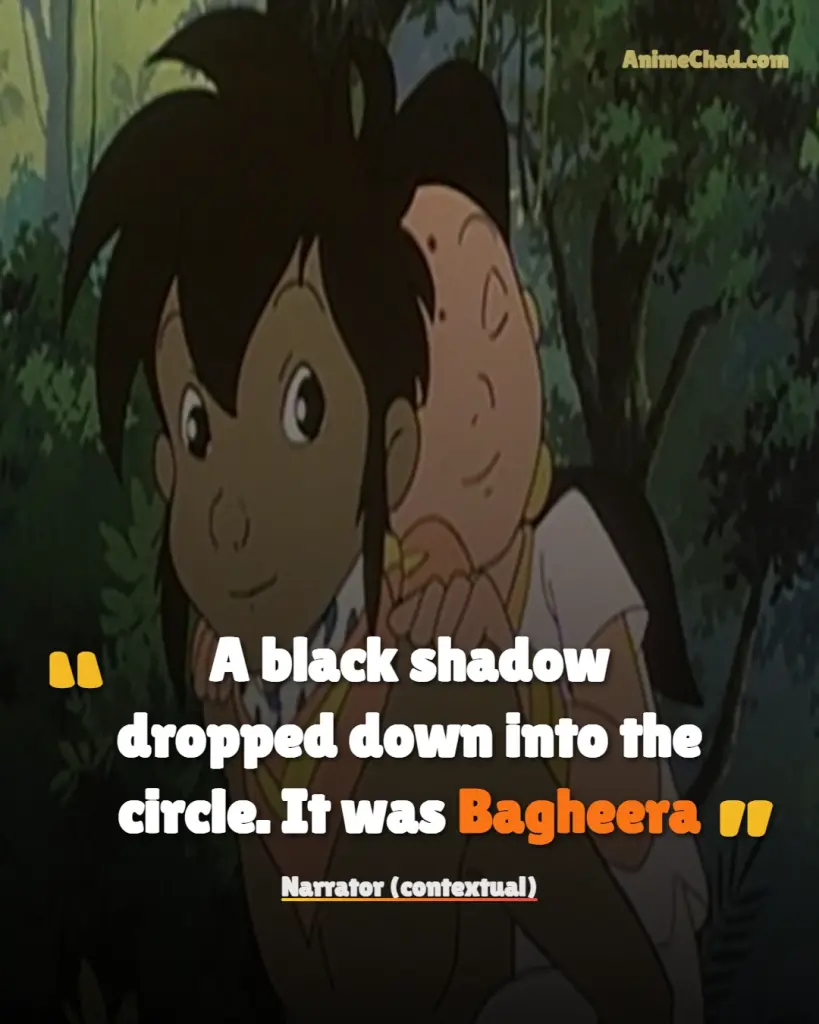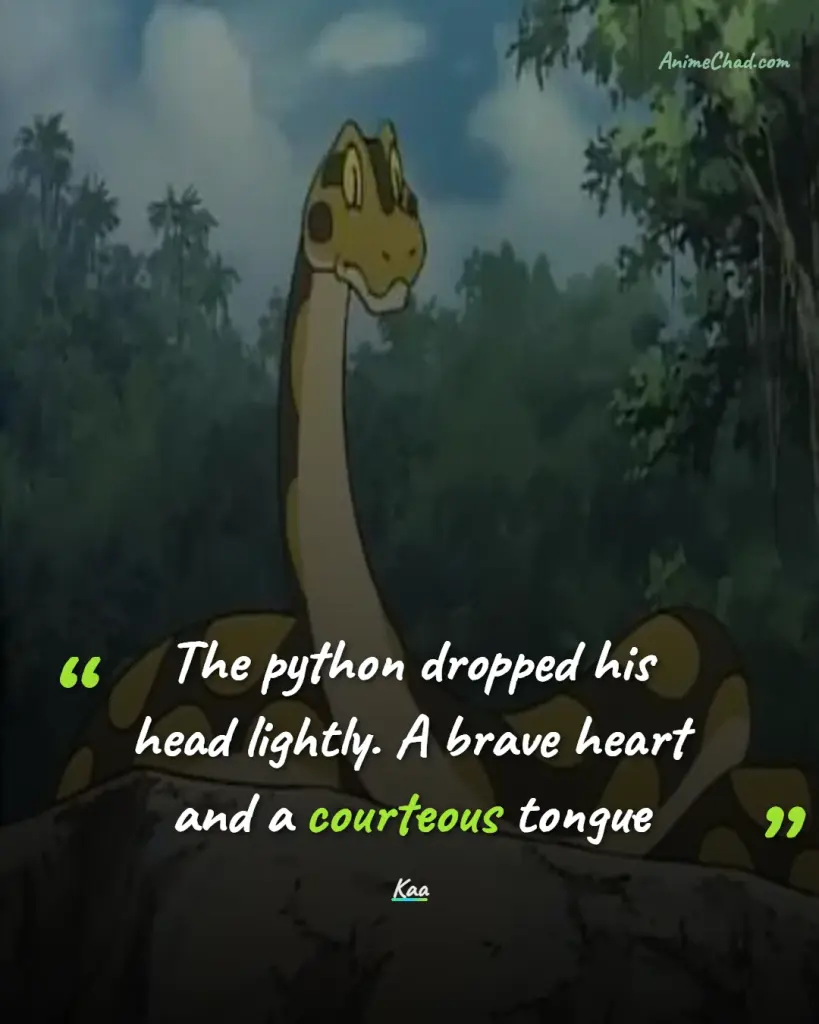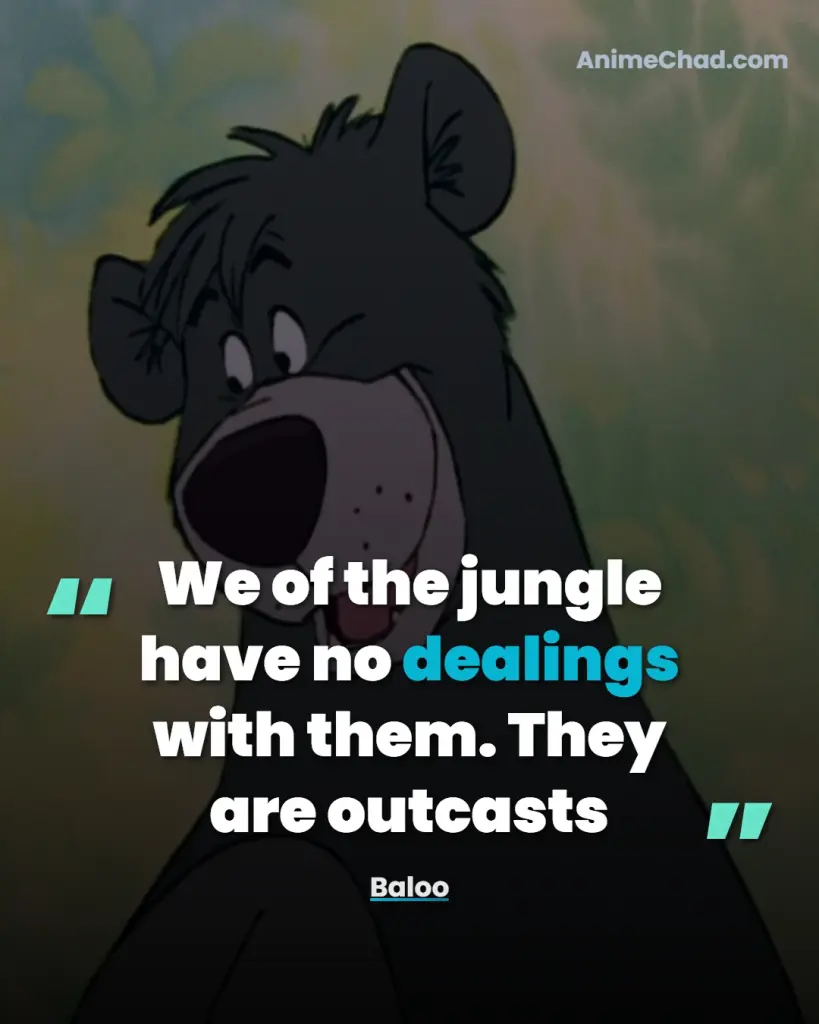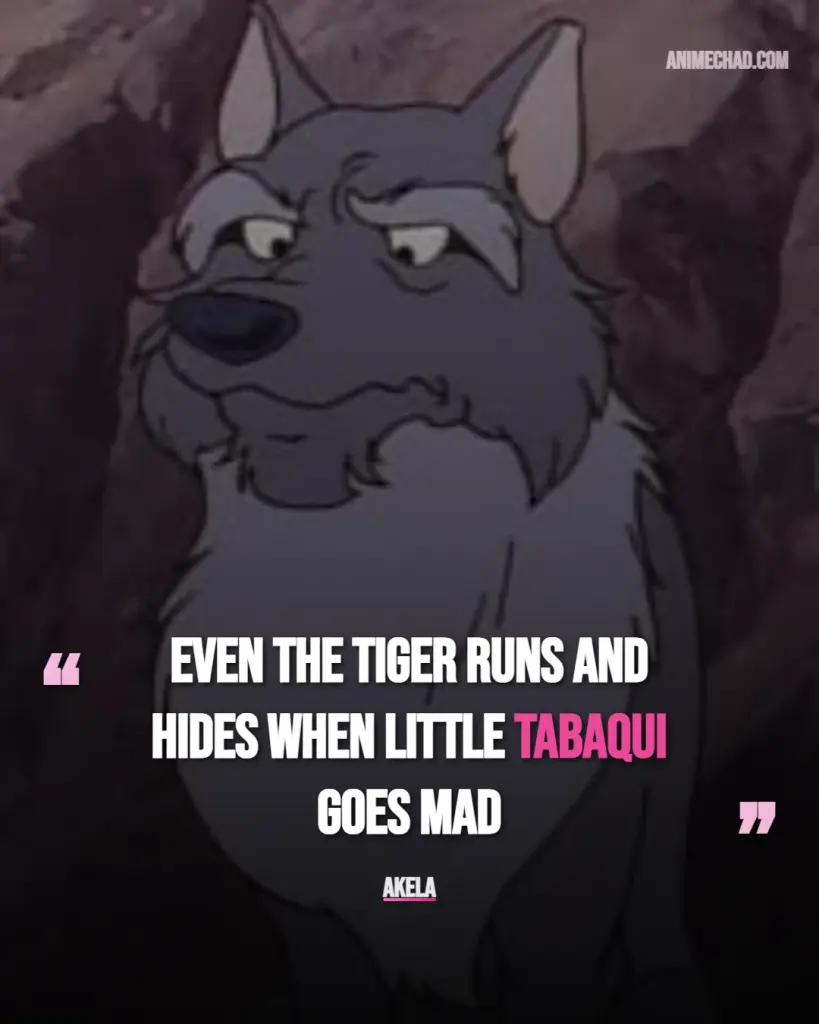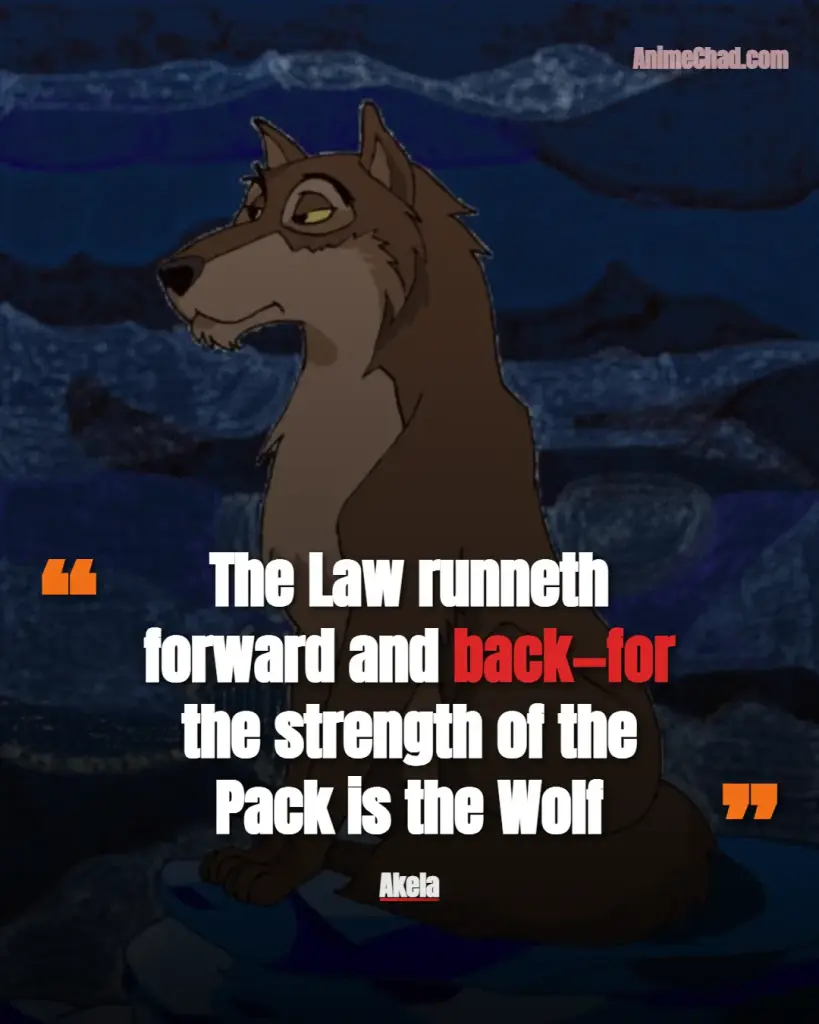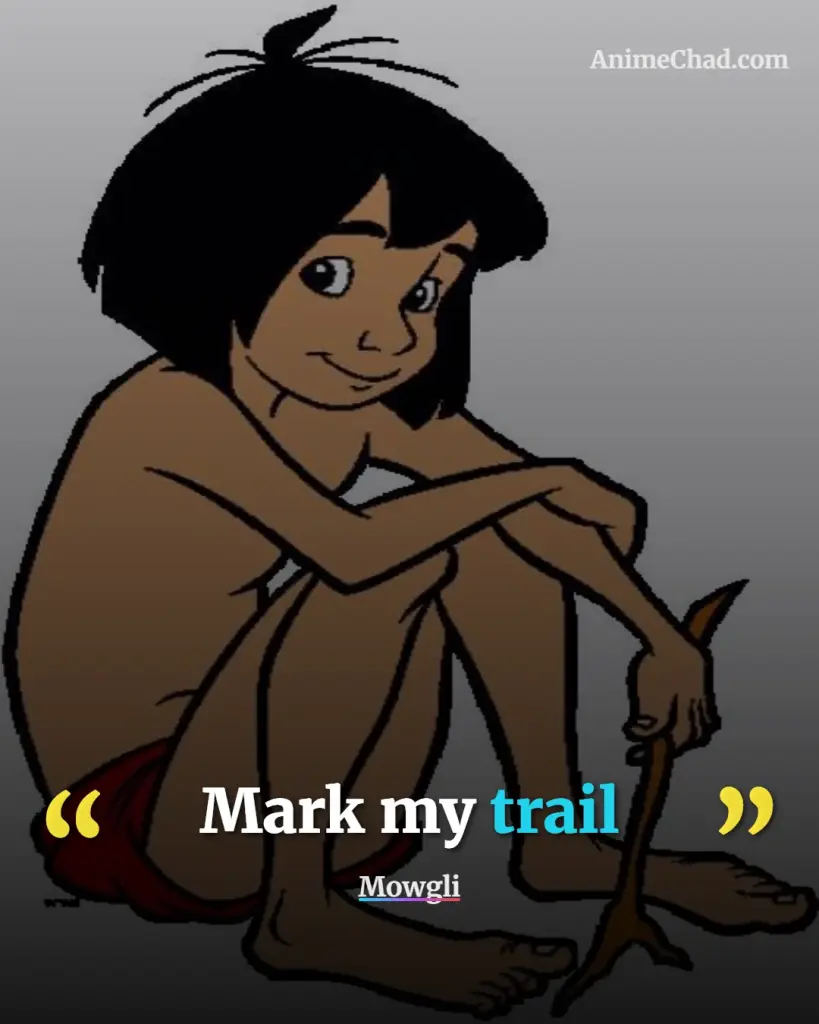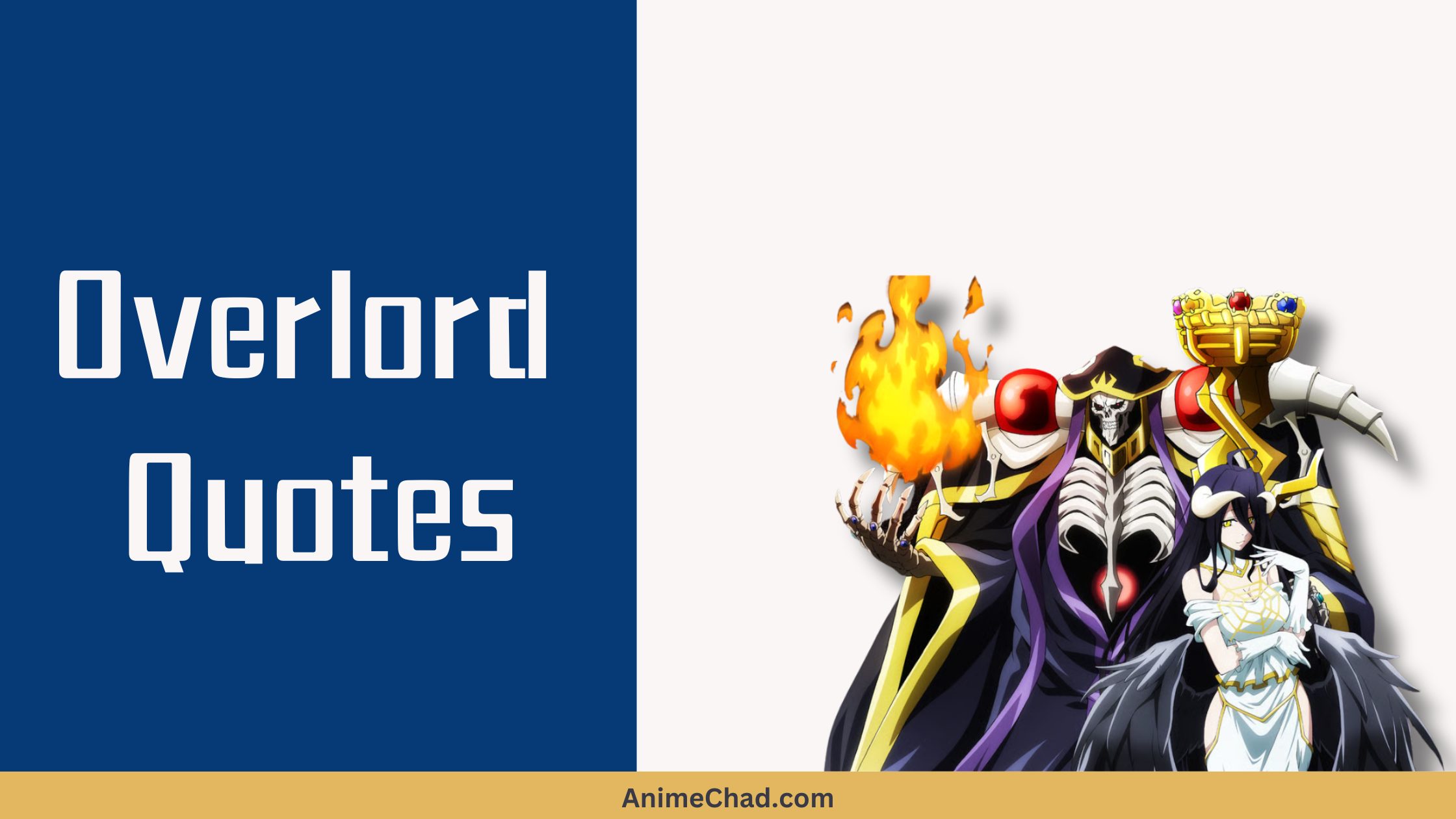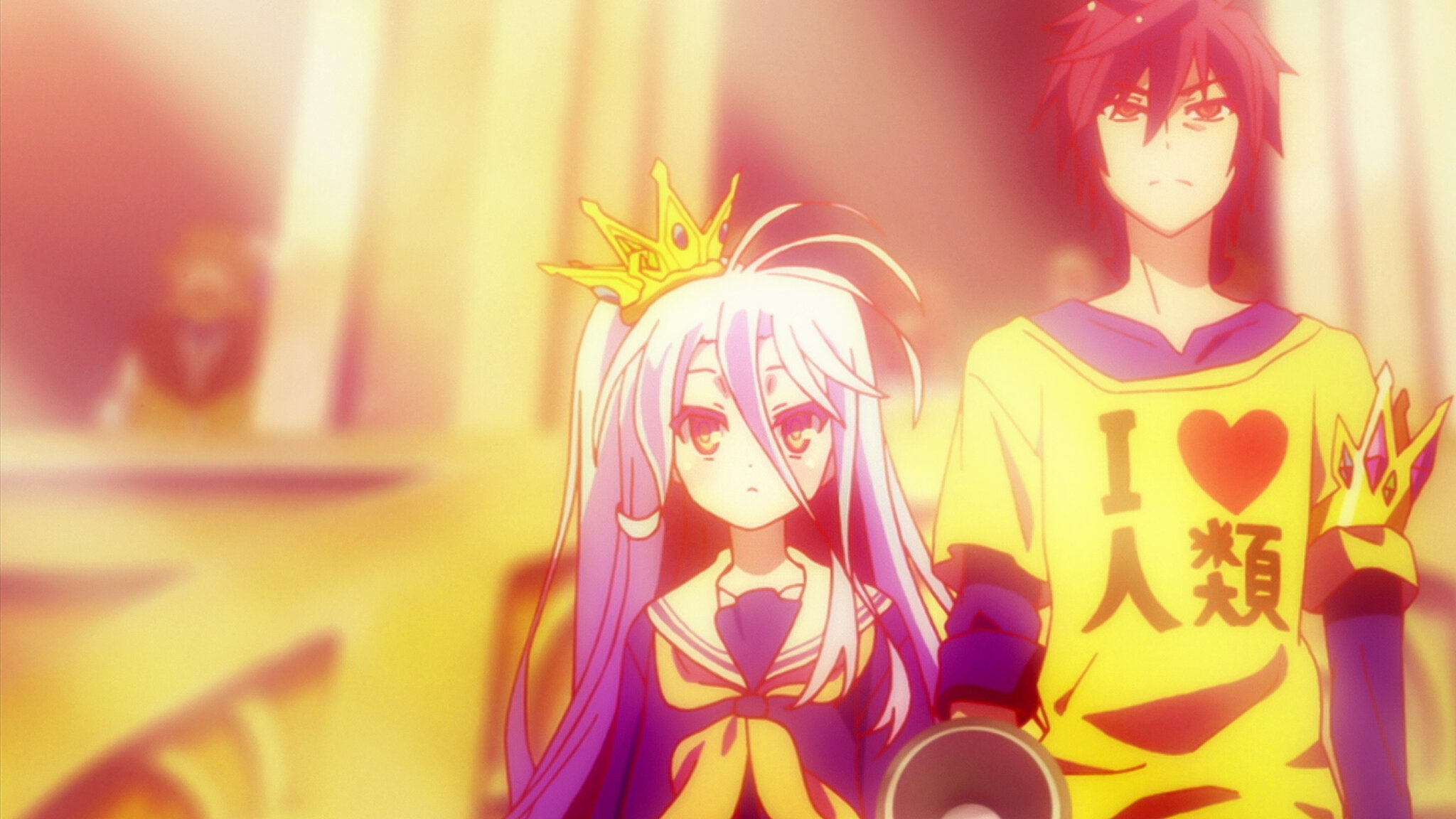The Jungle Book, originally a collection of stories by Rudyard Kipling, was adapted into the anime series Jungle Book Shōnen Mowgli, which follows the young human boy Mowgli as he grows up among wolves in the Indian jungle, facing dangers like the tiger Shere Khan. The series delves into themes of survival, family bonds, loyalty, and harmony with nature, blending adventure with lessons on courage and belonging.
This curated list of 25 canonical quotes highlights emotional depth, character growth, and key themes across various arcs, mixing intense battle moments with reflective peaceful ones, all drawn from the anime with episode references.
For the strength of the Pack is the Wolf, and the strength of the Wolf is the Pack
(Episode 1: Mowgli Comes to the Jungle)
Akela
This foundational law teaches Mowgli about unity, fostering his early development from outsider to pack member, emphasizing collective strength in survival themes.
Now Chil the Kite brings home the night, that Mang the Bat sets free
(Episode 2: The Law of the Jungle)
Baloo
Recited during a peaceful teaching moment, it underscores jungle rhythms and laws, highlighting Baloo’s role in Mowgli’s education and growth in understanding nature’s balance.
A brave heart and a courteous tongue shall carry thee far through the jungle
(Episode 3: A New Friend)
Kaa
In a tense yet advisory encounter, Kaa imparts wisdom on survival, reflecting Mowgli’s evolving confidence and the theme of cleverness over brute force.
We be of one blood, ye and I
(Episode 4: The Cold Fang)
Mowgli
Declared during a pack gathering, it symbolizes inclusion and brotherhood, marking Mowgli’s emotional acceptance and development amid themes of identity.
The jungle is large and the cub he is small. Let him think and be still
(Episode 5: Red Flower)
Bagheera
A reflective line during Mowgli’s fear of fire, showing Bagheera’s protective guidance and Mowgli’s growth in facing human elements, tying to adaptation themes.
Thou art of the Jungle and not of the Jungle
(Episode 7: The Lone Wolf)
Bagheera
In a quiet moment of doubt, it highlights Mowgli’s dual nature, driving his internal conflict and character arc toward self-acceptance.
Better he should be bruised from head to foot by me who love him
(Episode 8: Kaa’s Hunting)
Baloo
Spoken in a training scene, it reveals Baloo’s tough love, aiding Mowgli’s resilience and underscoring themes of mentorship and familial bonds.
These two things fight together in me as the snakes fight in the spring
(Episode 10: Mowgli’s Resolve)
Mowgli
Expressing inner turmoil during a peaceful reflection, it captures emotional weight of belonging, advancing his development in reconciling human and jungle worlds.
The reason the beasts give is that Man is the weakest and most defenseless
(Episode 12: Shere Khan’s Threat)
Akela
In a council meeting, it explains jungle prejudices, heightening tension and Mowgli’s growth in challenging biases, linked to themes of prejudice.
One of the beauties of Jungle Law is that punishment settles all scores
(Episode 14: The Water Truce)
Hathi
During a drought-induced peace, this promotes fairness, showing Mowgli’s learning of justice and its emotional impact on pack harmony.
My heart is heavy with the things I do not understand
(Episode 16: The Panther’s Past)
Bagheera
A vulnerable admission in a calm flashback, revealing Bagheera’s depth and aiding Mowgli’s empathy, connecting to themes of understanding others.
Madness is the most disgraceful thing that can overtake a wild creature
(Episode 18: Tabaqui’s Madness)
Akela
Amid a chaotic threat, it warns of loss of control, emphasizing Mowgli’s growth in valuing sanity and discipline in battle scenarios.
The air was full of all the night noises that make one big silence
(Episode 20: Night Hunt)
Mowgli
Describing a serene yet alert moment before action, it evokes atmospheric tension, highlighting his attunement to nature and sensory development.
And it is I, Raksha, who answers. The man’s cub is mine!
(Episode 22: Mother’s Defense)
Raksha
A fierce protective declaration in conflict, showcasing maternal love’s emotional power and Mowgli’s bond strengthening family themes.
What is the Law of the Jungle? Strike first and then give tongue
(Episode 24: Battle with Shere Khan)
Shere Khan
Taunting in combat, it reveals villainous philosophy, contrasting with Mowgli’s growth toward merciful strength and anti-violence themes.
I will remember what I was, I am sick of rope and chains
(Episode 26: Escape from Captivity)
Mowgli
In a moment of rebellion, it signifies breaking free, marking significant independence and rejection of human constraints.
There’s no jealousy in the grave
(Episode 28: Loss and Remembrance)
Bagheera
A somber reflection after loss, adding emotional gravity to grief, influencing Mowgli’s maturity in handling mortality.
These are the four that are never content: Jacala’s mouth, the kite, the ape, and Man’s eyes
(Episode 30: The Bandar-log)
Baloo
Warning against greed in a lighter encounter with monkeys, teaching contentment and advancing themes of moderation.
What of the hunting, hunter bold? Brother, the watch was long and cold
(Episode 32: The Old Tiger’s Lament)
Shere Khan
In a weakened state, this poetic admission humanizes the antagonist, adding depth to rivalry and Mowgli’s evolving compassion.
A black shadow dropped down into the circle. It was Bagheera
(Episode 34: The Black Panther)
Narrator (contextual)
Introducing a stealthy rescue, it highlights Bagheera’s cunning, contributing to action-packed growth in trust and alliance themes.
The python dropped his head lightly. A brave heart and a courteous tongue
(Episode 36: Kaa’s Wisdom)
Kaa
Repeating earlier advice in alliance, reinforcing Mowgli’s applied lessons and themes of wisdom in partnerships.
We of the jungle have no dealings with them. They are outcasts
(Episode 38: Monkey Mischief)
Baloo
Dismissing the Bandar-log in a teaching scene, it stresses social order, aiding Mowgli’s understanding of jungle hierarchies.
Even the tiger runs and hides when little Tabaqui goes mad
(Episode 40: The Mad Jackal)
Akela
During a disruptive event, it illustrates fear’s universality, adding humor-tinged tension to Mowgli’s adaptive learning.
The Law runneth forward and back—for the strength of the Pack is the Wolf
(Episode 42: Pack Unity)
Akela
Reaffirming unity in crisis, it emotionally binds the group, showcasing Mowgli’s leadership emergence in later arcs.
Mark my trail
(Episode 44: Farewell to the Jungle)
Mowgli
A poignant goodbye in a peaceful resolution, symbolizing closure and growth toward maturity, encapsulating themes of change.
